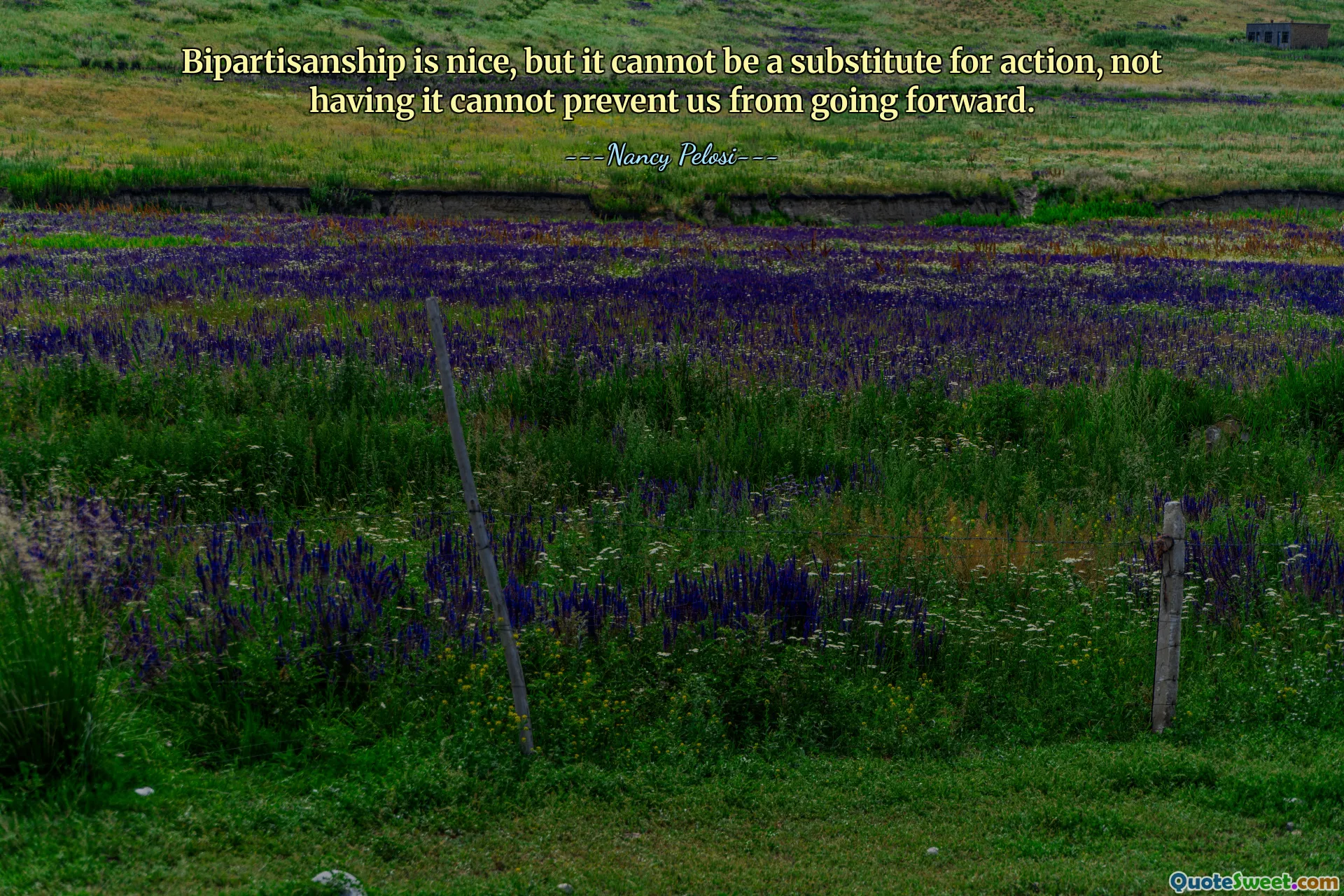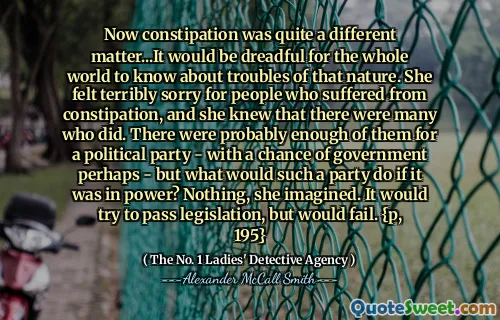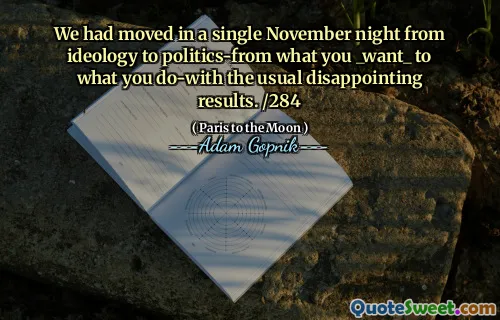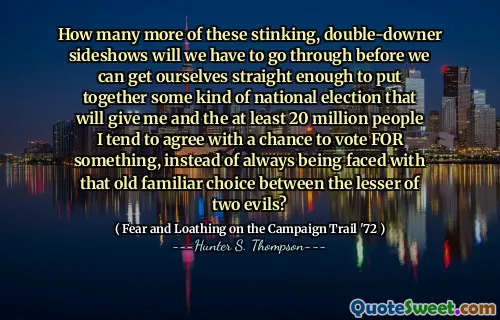
Bipartisanship is nice, but it cannot be a substitute for action, not having it cannot prevent us from going forward.
This quote highlights a vital truth about leadership and governance: while cooperation across political divides—bipartisanship—is undoubtedly desirable, it should not hinder progress when consensus cannot be reached. Often, in political discourse, there's a tendency to equate unity with success. However, true leadership entails making tough decisions and taking decisive action, even in the absence of complete agreement. Sometimes, waiting for perfect consensus or bipartisan support can delay critical initiatives, thereby exacerbating problems rather than alleviating them.
This perspective encourages a focus on efficacy over process, emphasizing that achieving tangible results is more important than maintaining superficial harmony. It recognizes the importance of pushing forward on issues that matter, regardless of opposition or partisan divides. The willingness to act when consensus isn't possible demonstrates strength and commitment to progress. Leaders must balance the ideal of collaboration with the practical necessity of decision-making. The quote reminds us that progress often involves risks—taking action can be challenging amid disagreements, but in the end, it is better than stagnation.
Furthermore, this outlook fosters an understanding that governance is inherently complex, and sometimes, the urgency of problems demands pragmatic solutions. It empowers policymakers to prioritize outcomes rather than symbolism, aligning efforts towards common goals instead of perfect unity. While bipartisanship can smooth the path, it should not be an excuse to delay responsible action. This mindset advocates for resilience, determination, and a strategic approach to leadership that prioritizes progress and problem-solving over purely ceremonial unity.











